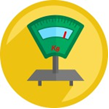Chapter 4: Testing your Vehicle
 While you may be in a rush to take that vehicle to the river and live in it, you need to test everything before you do so. Identifying that it is all in good working condition will keep you safe. It will also prevent frustrations that you forgot this item or that item and now you have to do without them.
While you may be in a rush to take that vehicle to the river and live in it, you need to test everything before you do so. Identifying that it is all in good working condition will keep you safe. It will also prevent frustrations that you forgot this item or that item and now you have to do without them.
 If you have installed anything that requires plumbing such as a shower, toilet, or sink you need to test all of them for leaks. The time to find out that you have an issue isn’t when you are out there at the river and now you can’t use those items as you thought you would be able to.
If you have installed anything that requires plumbing such as a shower, toilet, or sink you need to test all of them for leaks. The time to find out that you have an issue isn’t when you are out there at the river and now you can’t use those items as you thought you would be able to.
More importantly, if you have done any electrical wiring for your appliances to operate off of shore power or a generator, you need to test them. You want to make sure nothing is getting too hot and can overheat. You want to make sure there aren’t any short circuits. You also want to make sure that there isn’t an overload that will shut it all down.
Test your smoke detector and carbon detector to make sure they work. If you have any stoves or other cooking items, use them in the vehicle prior to doing so at the river. The purpose of this is to make sure that your ventilation system is properly set up. If you can cook in the vehicle and not set of the detectors then that is a very good indicator that you have done the ventilation very well.
 During the building process, if you have a place close by that has a commercial scale for vehicles (grain elevator), take the vehicle there at regular intervals. You want to weigh it – the front axles and the back axles separately. This helps you to see that the front and the rear are balanced.
During the building process, if you have a place close by that has a commercial scale for vehicles (grain elevator), take the vehicle there at regular intervals. You want to weigh it – the front axles and the back axles separately. This helps you to see that the front and the rear are balanced.
All vehicles have specific weight ratings of what they can carry on each axle. Avoid getting too much weight on one end of the vehicle; try to evenly distribute it as much as possible.
 You have to make sure your vehicle is in good enough condition for you to drive it safely on the roads. Check the tires to make sure they have enough pressure and that the tread on them is good. Test the blinkers to make sure they work like they should.
You have to make sure your vehicle is in good enough condition for you to drive it safely on the roads. Check the tires to make sure they have enough pressure and that the tread on them is good. Test the blinkers to make sure they work like they should.
Do the headlights and the brights work on the vehicle like they should? That may not be necessary if you don’t plan to drive it at night. You will need to have license plates and insurance on the vehicle too in case you get pulled over or you get into an accident.
 When was the last time the oil was changed? Are the fluids full including antifreeze, transmission fluid, and windshield wiper fluid? All of this is important so that you aren’t going to end up stranded with problems that you have to try to fix on the side of the road. You need the basics of the vehicle to operate well for you so that you can actually rely on the vehicle to get you to and from the intended destination.
When was the last time the oil was changed? Are the fluids full including antifreeze, transmission fluid, and windshield wiper fluid? All of this is important so that you aren’t going to end up stranded with problems that you have to try to fix on the side of the road. You need the basics of the vehicle to operate well for you so that you can actually rely on the vehicle to get you to and from the intended destination.
 It may sound silly, but make sure the gas gauge works! On older vehicles it may not and that could be a huge issue. If it doesn’t, write down the mileage each time you get gas and estimate on the low side how many miles you can safely travel before you need to fuel up again.
It may sound silly, but make sure the gas gauge works! On older vehicles it may not and that could be a huge issue. If it doesn’t, write down the mileage each time you get gas and estimate on the low side how many miles you can safely travel before you need to fuel up again.
 Does the speedometer work? If not, you will have a harder time obeying posted speed limit laws. It isn’t enough to just be able to keep up with the flow of traffic! That isn’t going to get you off the hook with a traffic ticket or speeding in a construction zone!
Does the speedometer work? If not, you will have a harder time obeying posted speed limit laws. It isn’t enough to just be able to keep up with the flow of traffic! That isn’t going to get you off the hook with a traffic ticket or speeding in a construction zone!
If you have a trailer hitch, it needs to be secure and you need to make sure the lights for the trailer work. If you have items that are tied to the back or the top of the vehicle they need to be securely in place. When you stop along your route, double check them as they can work loose with the ride.
 It is going to be easier for you to fix anything when you are at home than when you are at the river. However, you should have some basic tools with you on site so that you can do minor repairs if you need to. Even if you test everything then you need be prepared for what could occur down the road.
It is going to be easier for you to fix anything when you are at home than when you are at the river. However, you should have some basic tools with you on site so that you can do minor repairs if you need to. Even if you test everything then you need be prepared for what could occur down the road.
 |
| Chapter 5 Selecting your Location 5 > |